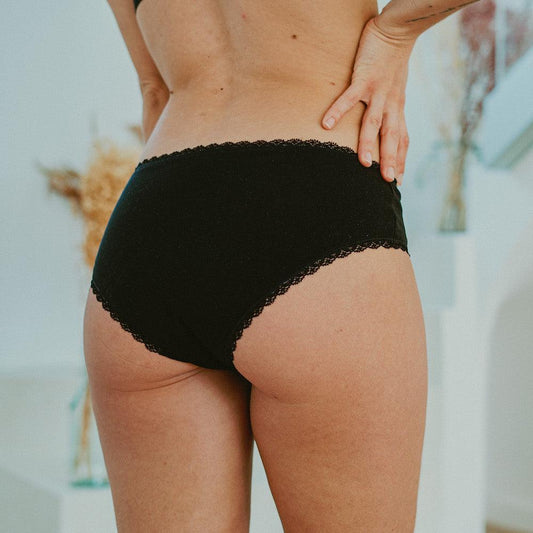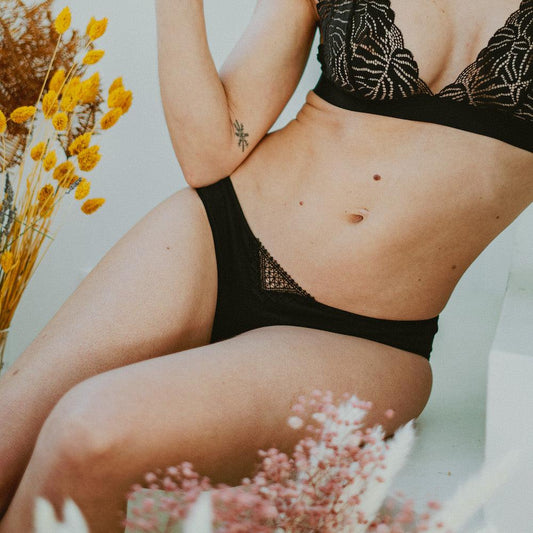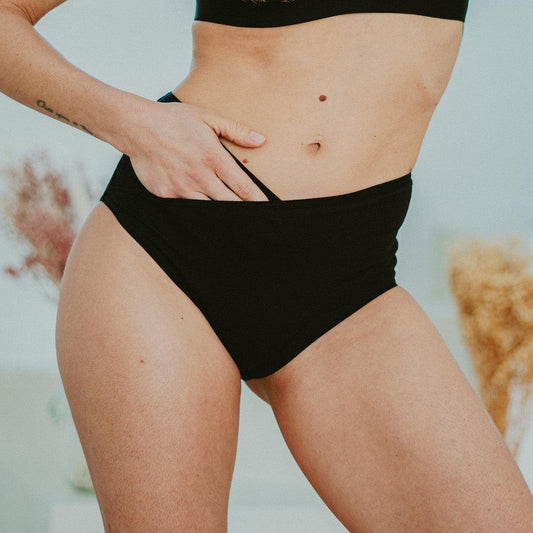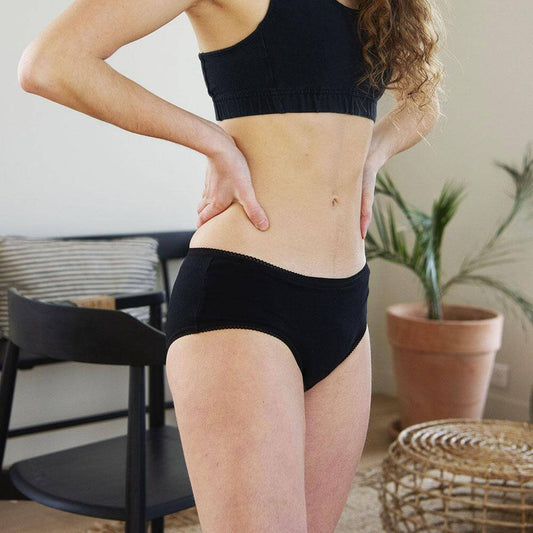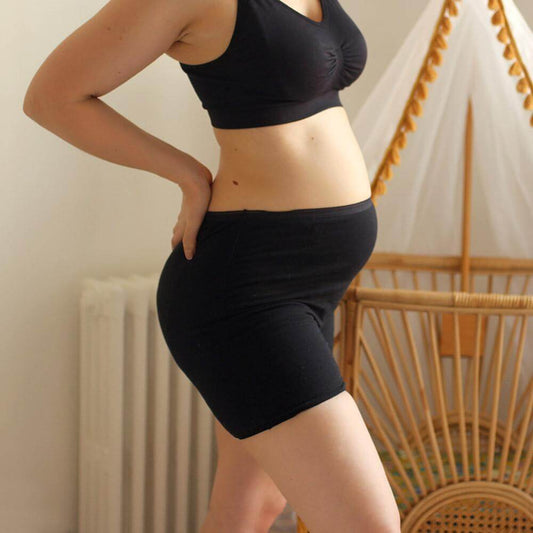Fatigue, irritabilité, crampes, ballonnements… Chez beaucoup de femmes, les menstruations entraînent des désagréments plus ou moins supportables. Vous possédez sans doute vos propres astuces pour les apaiser au quotidien. Mais saviez-vous que certaines habitudes peuvent empirer la situation ? Pour mieux vivre votre cycle menstruel, découvrez 10 choses à ne pas faire pendant les règles !
Règles et cycle menstruel : de nombreuses choses à apprendre
Les règles correspondent à un phénomène physiologique naturel rythmant la vie des femmes de la puberté à la ménopause. En l’absence de grossesse, la muqueuse de l’utérus ou endomètre est éliminée et provoque un écoulement sanguin. Les menstruations ont une périodicité de 28 jours environ et durent généralement entre 3 et 7 jours.
Elles se trouvent au cœur du cycle menstruel qui se divise en trois grandes phases:
- la phase folliculaire (du 1er jour des règles au 14e jour du cycle) durant laquelle les ovaires se préparent à libérer un ovule ;
- l’ovulation (autour du 14e jour du cycle) ;
- la phase lutéale (du 14e au 28e jour) au cours de laquelle l’endomètre s’épaissit sous l’action de la progestérone produite par le corps jaune (glande endocrine se développant chaque mois dans l’ovaire qui a libéré un ovule).
Durant ce cycle féminin, de nombreuses hormones sont sécrétées : œstrogènes et progestérone, hormone folliculo-stimulante (FSH) et hormone lutéinisante (LH). Et c’est leurs fluctuations qui possèdent des incidences multiples sur la vie des femmes. Certaines ressentent des tensions dans les seins, des nausées et des douleurs dans le bas-ventre. D’autres se montrent irritables et souffrent de migraines ou d’une importante fatigue. Les symptômes associés aux règles diffèrent ainsi d’une personne à l’autre.
Pour soulager ces désagréments, il faut bien sûr rester à l’écoute de son corps et suivre les conseils prodigués par les professionnels de santé. Nous avons toutefois encore beaucoup à apprendre sur les menstruations et le cycle féminin. Les gynécologues ont en effet identifié certaines choses à ne pas faire pendant les règles afin de limiter les incommodités. Et vous verrez qu’elles vont sans doute chambouler bon nombre de vos idées reçues !
Les 10 choses à éviter de faire pendant ses règles
Dans une enquête menée en 2017 auprès de nombreux gynécologues, le site féminin américain Bustle a identifié plusieurs choses à éviter pendant les règles. La liste que nous vous proposons n’est pas exhaustive. Elle rassemble différents conseils prodigués par des professionnels de santé ainsi que quelques astuces éprouvées par notre équipe d’expertes.
1. Porter des vêtements trop moulants
Cette première recommandation reste simple, mais nous avons parfois tendance à l’oublier. Il faut éviter de porter des vêtements trop moulants durant les règles. Bannissez les jeans slim et les pantalons taille haute qui pourraient vous comprimer le ventre !
Si vous souffrez de ballonnements et autres gonflements pendant vos menstruations, vous vous sentirez mieux dans votre corps. Vous écartez également les risques de tacher vos habits préférés avec du sang !
2. Stopper son activité sportive
Lorsque les menstruations arrivent, nous sommes tentées de nous allonger dans notre canapé et de stopper tout exercice physique. Faire du sport pendant les règles présente pourtant de nombreux bienfaits tels que la diminution des maux de tête, des spasmes, de la fatigue et même de l’anxiété. En adaptant vos séances à votre cycle, vous pourrez réduire l’intensité de vos douleurs et soulager le syndrome prémenstruel (SPM).
3. Accepter la souffrance comme « normale »
Vous souffrez de règles douloureuses ? Ne subissez plus vos crampes, flux abondant et autres sautes d’humeur ! Il n’est pas normal de supporter ces douleurs tous les mois. Nous vous conseillons donc de consulter votre médecin, votre gynécologue ou votre sage-femme pour y remédier. De nombreux traitements existent pour prévenir les douleurs menstruelles.
4. Faire l’impasse sur la protection pendant l’acte sexuel
De nombreuses femmes se demandent si elles peuvent tomber enceintes durant leurs règles. Bien que les probabilités restent faibles, cela demeure tout à fait possible. Les menstruations ne constituent pas un contraceptif. Si vous avez un cycle court, long ou irrégulier, vous pouvez tomber enceinte pendant vos menstruations. L’ovulation peut en effet se produire au tout début de vos règles ou quelques jours après. Dans le cas d’un rapport non protégé avant ou après cette période, l’ovule peut ainsi être fécondé par un spermatozoïde qui survit environ 5 jours dans les voies génitales.
Faire l’impasse sur la protection pendant l’acte sexuel fait donc partie des choses à éviter pendant les règles. Dans le cas où vous n’auriez pas un partenaire régulier, rappelez-vous également que seul le préservatif protège des maladies sexuellement transmissibles (MST).
Faire l’amour pendant ses règles ne doit toutefois pas être tabou. Si vous vous sentez à l’aise et que vous en avez envie, n’hésitez pas ! Les hormones sécrétées lors de l’orgasme vous permettront d’atténuer les douleurs et de vous détendre.
5. Réduire son temps de sommeil
Le manque de sommeil demeure néfaste pour la santé. Lorsque vous avez vos règles, vous êtes inévitablement plus fatiguée. Si vous ne dormez pas suffisamment, votre organisme va accroître sa production de cortisol (hormone du stress). Il en résultera un déséquilibre qui aura un impact négatif sur vos menstruations.
Ne réduisez donc pas votre temps de sommeil lors de cette période délicate. Si vous subissez des insomnies durant vos règles, sachez qu’il existe des solutions simples et naturelles pour favoriser un bon endormissement et retrouver un sommeil de qualité.
6. Manger trop gras, trop sucré, trop salé
En période de règles, il est fréquent d’avoir envie de manger plus et de consommer des aliments gras, sucrés et salés. Vous rêvez d’un cornet de frites géant ou d’une épaisse tranche de comté ? Abstenez-vous !
Une nourriture trop grasse, trop sucrée et trop salée peut en effet amplifier certains symptômes menstruels. Le sel va par exemple favoriser la rétention d’eau, les ballonnements et les crampes. Les aliments gras créeront un terrain propice à l’acné et à la prise de poids. Les produits laitiers feront augmenter votre production de prostaglandines, des hormones accentuant les contractions de l’utérus et de l’intestin. Surveillez donc votre alimentation pendant les règles !
7. Boire plusieurs tasses de café
Vous êtes une grande amatrice de café et vous en consommez tous les jours ? Notez que pendant le SPM et les règles, la caféine peut aggraver certains symptômes. Cette molécule, qui favorise la compression des vaisseaux sanguins, accentue ainsi les ballonnements et les crampes menstruelles. Elle peut également augmenter le temps nécessaire à l’endormissement et entraîner des insomnies.
Boire plusieurs tasses de café fait partie des choses à ne pas faire pendant les règles. Essayez donc de changer vos habitudes en consommant par exemple du thé vert, un remède naturel diurétique efficace contre la rétention d’eau.
8. Ne pas avoir de protections hygiéniques sur soi
Il est indispensable de toujours avoir des protections hygiéniques sur vous pendant vos règles. Pourquoi ? Pour vous changer régulièrement au cours de la journée bien sûr, éviter les débordements de sang et prévenir un éventuel choc toxique si vous utilisez des tampons.
Avant de sortir de chez vous, nous vous recommandons de vérifier que vous disposez d’un nombre suffisant de serviettes hygiéniques ou de tampons pour la journée. Si vous avez l’habitude de porter de la lingerie menstruelle, pensez à glisser dans votre sac une culotte menstruelle de rechange dans une pochette étanche.
9. Prévoir un rendez-vous chez l’esthéticienne
Nous vous déconseillons de planifier un rendez-vous chez votre esthéticienne pendant vos menstruations. Durant cette période du cycle féminin, les récepteurs de la douleur se montrent en effet encore plus sensibles, notamment au niveau de la peau de la zone intime. Évitez donc toute épilation, et en particulier celle du maillot !
10. Prendre beaucoup (trop) de douches
Certaines femmes qui ont leurs règles se sentent sales et se lavent beaucoup plus souvent. Prendre trop de douches pendant ses menstruations n’est pourtant pas recommandé. Limitez-vous à une douche par jour, comme d’habitude.
Et surtout, ne tentez pas d’effectuer une douche vaginale. Le vagin est un organe qui s’autonettoie et qui abrite de nombreuses bactéries essentielles à son bon fonctionnement. Si vous le lavez avec de l’eau et du savon, sa flore sera fragilisée et vous risquez de développer une mycose, une vaginite ou une infection.


